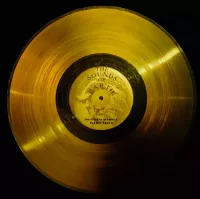The horse, scientifically known as Equus ferus caballus, is a domesticated, single-toed, hoofed mammal belonging to the Equidae family. Its evolution spans 45-55 million years, transforming from a small, multi-toed creature to the large, single-toed animal we know today. Domestication began around 4000 BCE in Central Asia and became widespread by 3000 BCE. While most horses are domesticated, some populations exist as feral horses, distinct from true wild horses that have never been domesticated. A comprehensive vocabulary exists to describe various aspects of equine characteristics, including anatomy, life stages, size, colors, breeds, and behavior.
1909: Extinction of the Tarpan
In 1909, the last captive Tarpan, or European wild horse, died in a Russian zoo, marking the extinction of its genetic line.
1969: Przewalski's horse presumed extinct in the wild
In 1969, the Przewalski's horse subspecies was presumed extinct in the wild. Despite this, a small breeding population managed to survive in zoos across the globe.
1992: Przewalski's horse reestablished in the wild
In 1992, the Przewalski's horse was successfully reintroduced into the wild through the collaborative conservation efforts of numerous zoos. Subsequently, a small wild breeding population was established in Mongolia.
2000: Spread of Domesticated Horses in Europe
By 2000 BCE, there was a notable increase in the discovery of horse bones at human settlements in northwestern Europe, which indicated the growing spread of domesticated horses throughout the continent.
2004: Horses Voted 4th Favorite Animal
In 2004, a poll conducted by Animal Planet saw more than 50,000 viewers from 73 countries voting for the horse as the world's 4th favorite animal.
2007: Death of Sugar Puff
In 2007, Sugar Puff, recognized by Guinness World Records as the world's oldest living pony, passed away at the age of 56.
2007: Horse Genome Sequenced
In 2007, the horse genome was successfully sequenced. It was found to contain 2.7 billion DNA base pairs, exceeding the size of the dog genome but smaller than the human or bovine genomes. The map became available to researchers.
2008: FAO Estimates Horse Population
In 2008, the Food and Agriculture Organization (FAO) estimated there were approximately 59,000,000 horses worldwide, with the majority located in the Americas, followed by Asia, Europe, and smaller populations in Africa and Oceania.
2013: Study on Music and Horse Behavior
In 2013, a study in the UK revealed that stabled horses exhibited calmness in quiet environments or when listening to country or classical music. However, they displayed signs of nervousness when exposed to jazz or rock music. The study suggested maintaining music volume below 21 decibels.
2019: Global Horse Population
As of 2019, the estimated global horse population is around 17 million. Adult horses maintain a healthy body temperature between 37.5 and 38.5 °C (99.5 and 101.3 °F) when ambient temperatures range from 5 to 25 °C (41 and 77 °F).
2021: Genetic study of modern domestic horses
In 2021, a genetic study suggested that most modern domestic horses descend from the lower Volga-Don region. These populations expanded rapidly throughout Eurasia, beginning about 4,200 years ago. It also shows that certain adaptations were strongly selected due to riding, and that equestrian material culture, including Sintashta, spoke-wheeled chariots, spread with the horse itself.
Trending
32 minutes ago Julian Reese Joins Washington Wizards on Two-Way Contract, Making NBA Debut.
32 minutes ago Missouri Pick 3 and Powerball: Winning Numbers Revealed for February 28, 2026

33 minutes ago Kaiya Wynn's departure: Senior Day snub as 'breaking point' from Lady Vols.

2 hours ago Anhelina Kalinina Runner-Up at Antalya WTA 125, WTA Megarasay Hotels Open 2

5 hours ago Marcus Smart shines with defensive prowess, racking up steals in Lakers' victory.

5 hours ago DeMar DeRozan Trade Rumors: Kings, Hawks Potential Suitors; NBA Picks Targeted
Popular

Hillary Diane Rodham Clinton is a prominent American politician lawyer...

Ken Paxton is an American politician and lawyer serving as...

Jesse Jackson is an American civil rights activist politician and...

Jim Carrey is a Canadian-American actor and comedian celebrated for...

Bill Clinton served as the nd U S President from...

XXXTentacion born Jahseh Dwayne Ricardo Onfroy was a controversial yet...


